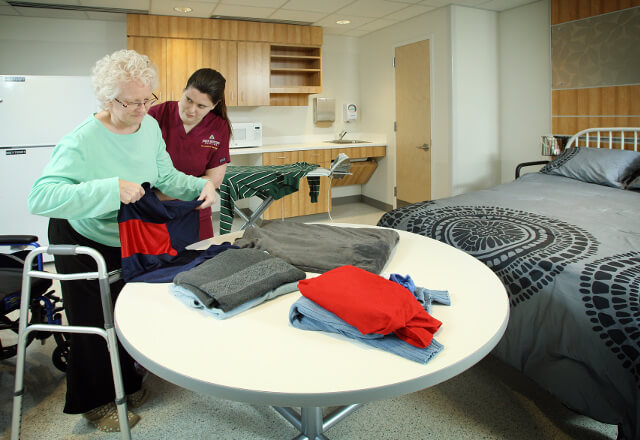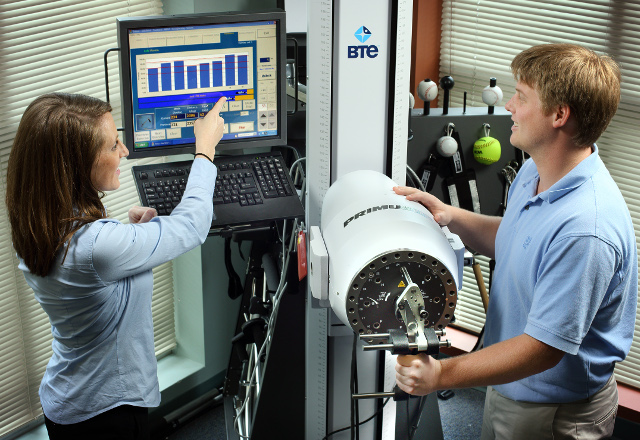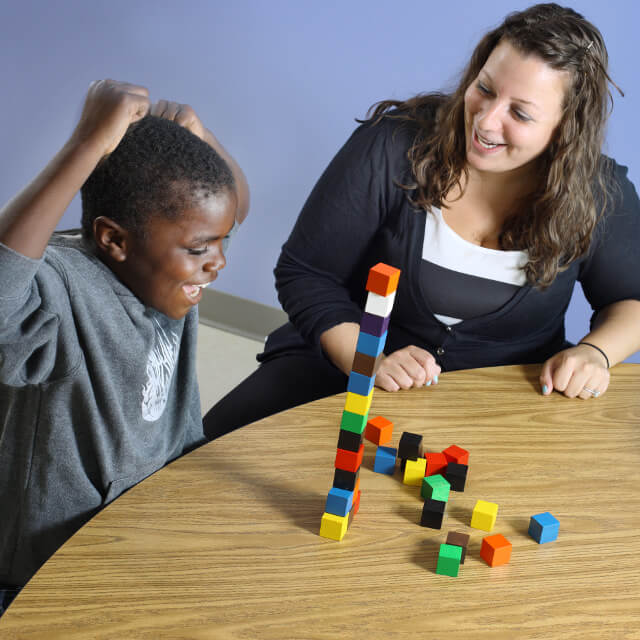Occupational Therapy
Occupational therapists at Johns Hopkins help patients participate in meaningful daily activities and practice habits they may need for work and recreation. Our team of occupational therapists works with adults and children recovering from injury and surgery, and those managing chronic illness, to help them care for themselves and be independent.
Why Choose Johns Hopkins

- We start with an evaluation that focuses on discussing your personal health goals. This helps us set benchmarks to measure your progress.
- Next, we develop a customized rehabilitation plan to help you achieve your goals. Occupational therapy treatments are focused on re-training movement and self-care skills, providing adaptive equipment, and training in the use of energy conservation and work simplification to increase independent living.
- As you move forward with occupational therapy, we set intervals to measure success and make adjustments to the treatment plan as needed.
- Our work with children is focused on helping them fully participate in school and social situations.
- For older adults experiencing physical and cognitive changes, we provide support so they can safely perform activities of daily living.
- Occupational therapists also perform upper extremity wound care and whirlpools, dynamic and static splinting, and make recommendations for medical equipment, such as bedside commodes, tub seats and grab bars.
Schedule An Appointment
Schedule by phone
Maryland clinics except Bayview: 443-997-5476
Johns Hopkins Bayview: 410-550-0414
Sibley Memorial Hospital: 202-364-7665
Schedule online through MyChart
Who Can Benefit From Occupational Therapy
Occupational therapy can be effective for people suffering from these and similar impairments:
- Visual impairments and difficulties with perception
- Trouble with fine motor skills, such as writing or tying a shoe
- Problems with balance or hand-eye coordination
- Sensory integration dysfunction: when information from the senses doesn’t get properly interpreted by the brain
- Decreased upper body and/or extremities strength and/or range of motion
- Cognitive impairments (memory, sequencing, problem solving, insight, safety awareness, etc.)
- The need to wear splints, orthotics, prosthetics or other devices that impair normal fnction
- Impaired performance in self-care and community reintegration
Our Specialized Occupational Therapy Programs
Other Specialty Areas
Someone who is undergoing cancer treatment may need different therapy than someone recovering from a spinal cord injury. Our occupational therapists have experience in many areas of rehabilitation and will customize the treatment based on your unique condition and needs. We frequently work with patients who have experienced:
Find an Occupational Therapist
We have many experienced occupational therapists who specialize in neurology, hand therapy, mental health, and other areas. At Sibley Memorial Hospital, occupational therapy subspecialties include hand therapy and lymphedema. All our therapists are friendly, caring and easy to work with. They will help you overcome challenges and will motivate you to stay on track with your goals.




